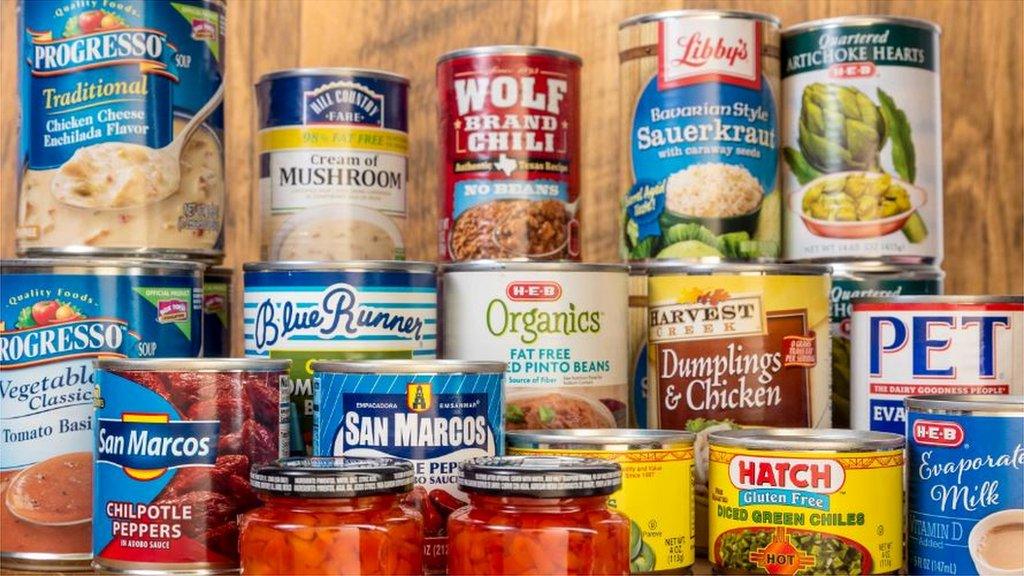Spring Statement 2022: What is it and how does it affect me?
- Published
- comments
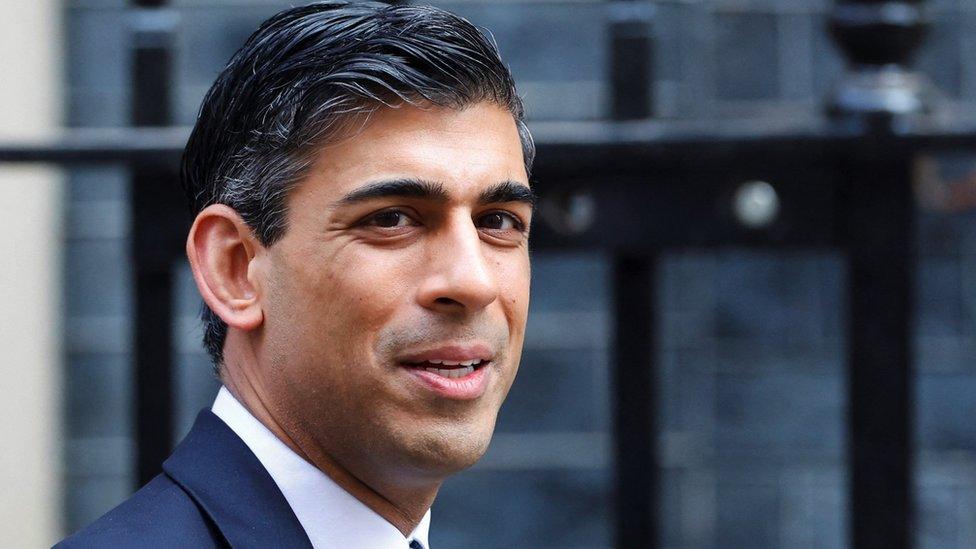
The Spring Statement is given by the Chancellor of the Exchequer, Conservative politician Rishi Sunak
The UK government's Spring Statement was announced to Members of Parliament (MPs) on Wednesday.
It was delivered by the Chancellor of the Exchequer, Rishi Sunak, who is the person in charge of the country's money.
Mr Sunak makes these important decisions with help from his team, which is known as the Treasury.
Normally, the Spring Statement would just involve letting the country know how the economy is doing, and is less important than the Budget speech.
But this time, the chancellor has announced new plans to help people deal with rising fuel, energy and food costs.
Why is the cost of living going up?
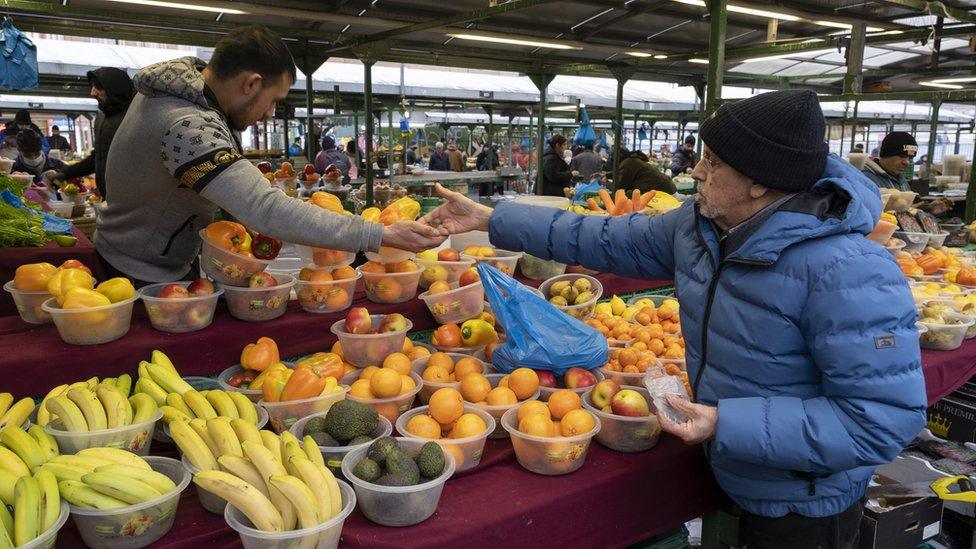
The chancellor's update on the economy comes after rising prices for food and household bills
The cost of living is the cost of basic things we all need - like food, housing, water, heating, transport and clothes.
When these rise in price it makes it harder for people on low wages to afford the extra money these things cost.
When Mr Sunak delivered his last Budget in October 2021, he said that the UK economy was expected to grow in 2022, as things improved after the pandemic.
But a lot has happened since then.
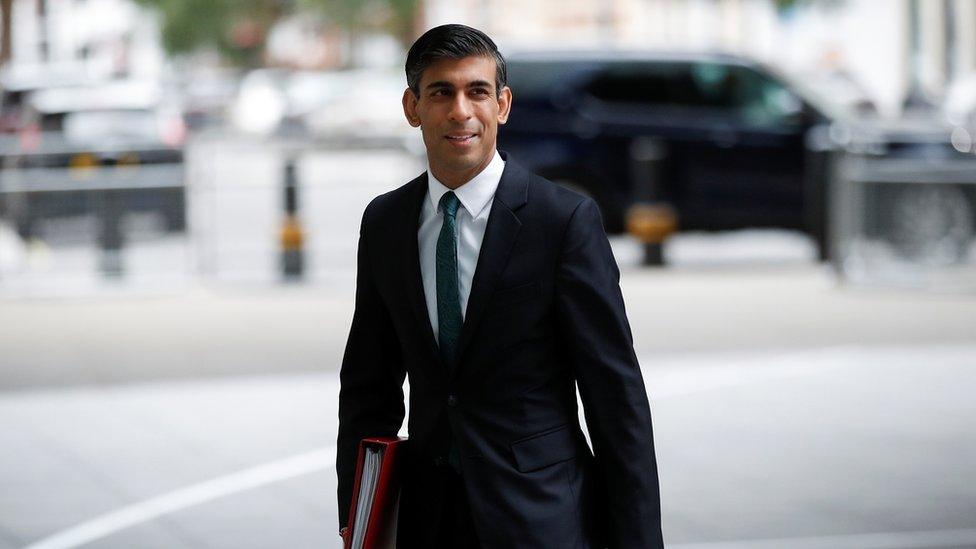
Rishi Sunak last outlined his plans on what the government will spend money on in October's Budget
The cost of living has continued to rise, due to a number of reasons - mostly notably the increase in oil and gas prices.
Meanwhile, the war in Ukraine could push food and energy prices higher still.
The Bank of England has warned that inflation - the rise in the cost of goods and services over a period of time will rise, and remain high for a while.
If prices rise too much, people could be put off spending their money to buy things, which could then in turn stop the economy growing.
What measures has the chancellor announced?

The cost of filling up your family car with fuel keeps rising
Given all of these things, the chancellor has been forced to bring in measures to help fix these problems.
Petrol and diesel prices have risen sharply in recent weeks, made worse by Russia's invasion of Ukraine. This is because the UK wants to stop using oil from Russia.
Mr Sunak announced on Wednesday a small cut in a tax called fuel duty, which makes up part of the price when you buy petrol, diesel or other fuels for vehicles or heating.
However, motoring group, the RAC, says cutting fuel duty by 5p per litre will only take £3.30 off the cost of filling a typical sized family car with petrol.
These are extra taxes charged on certain things like cigarettes, alcohol and petrol. Most of the money people pay for these goes to the government as 'duty'.
The chancellor also announced that the government will raise the level for the amount people earn before they pay National Insurance - a type of income tax - which everyone in the UK who earns money has to pay to the government.
"From this July, people will be able to earn £12,570 a year without paying a single penny of income tax or National Insurance." he said.
According to Mr Sunak, that's a tax cut for 30 million people worth over £330 a year.
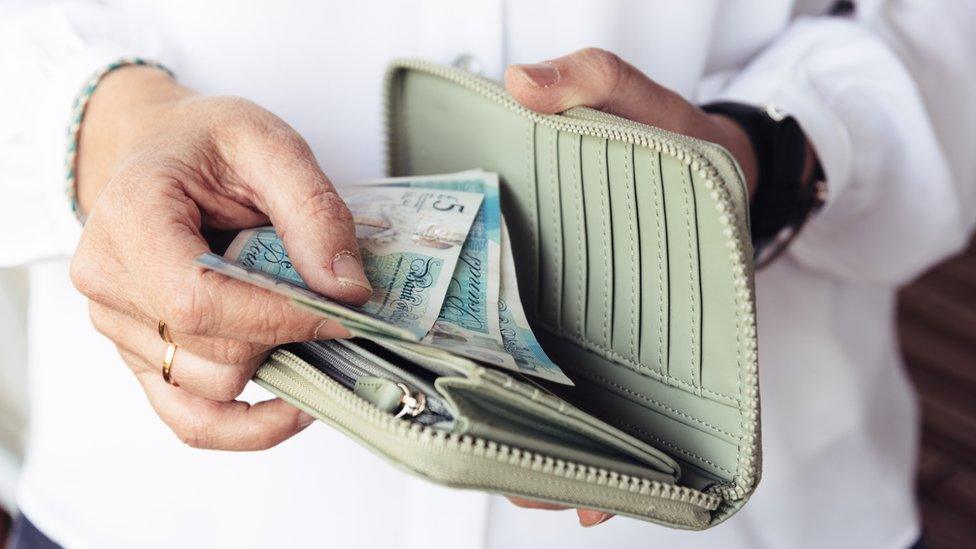
Everyone across the UK is facing the sharpest rise in their cost of living for decades
Here are some other measures announced by the chancellor in the Spring Statement:
Homeowners will pay no Value Added Tax (VAT) for the next five years on energy saving materials, such as insulation, solar panels or heat pumps. You may not realise it but normally 20% of the cost of many things people buy goes to the government as VAT.
The government's Household Support Fund - money for local councils to help the most vulnerable people in communities - will be doubled to £1 billion from April.
The Employment Allowance, which gives help to smaller businesses' National Insurance payments, will increase from £4,000 to £5,000 from April.
However, Shadow chancellor Rachel Reeves - who represents the rival Labour Party - criticised Mr Sunak's plans.
She said she understands there are "always difficult" choices to be made when tackling inflation and rising costs, but thinks Mr Sunak is targeting the wrong people, hitting "millions of the middle" rather than the very wealthiest.
Why do we have a Spring Statement?
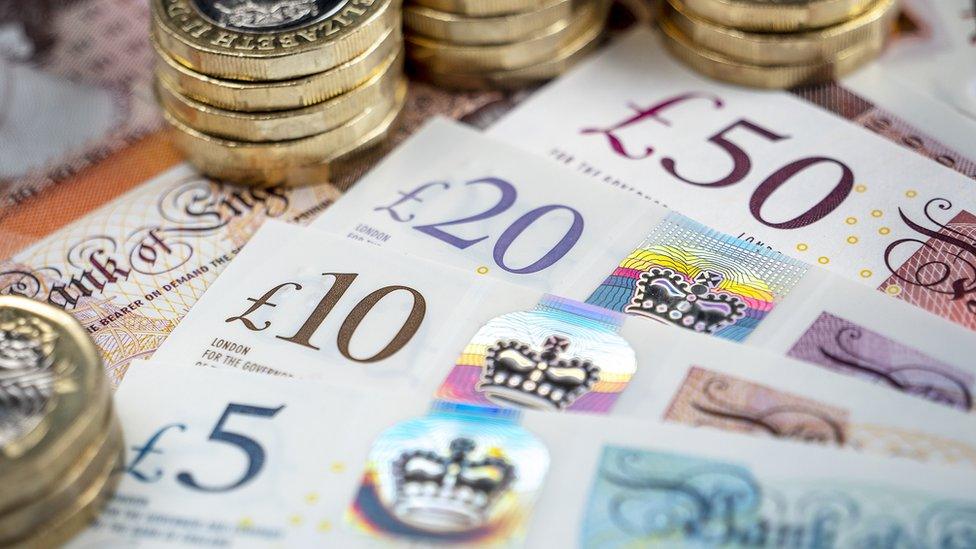
Just like you decide how to spend your pocket money, the government has to decide how it's going to spend its money.
It's important that it then tells the nation how it plans to do this.
The sorts of things the government has to spend money on include services like schools, hospitals, the police and housing.
To find out more about where the government actually gets its money from, check out Newsround's guide to the Budget.
Does the Spring Statement affect me?
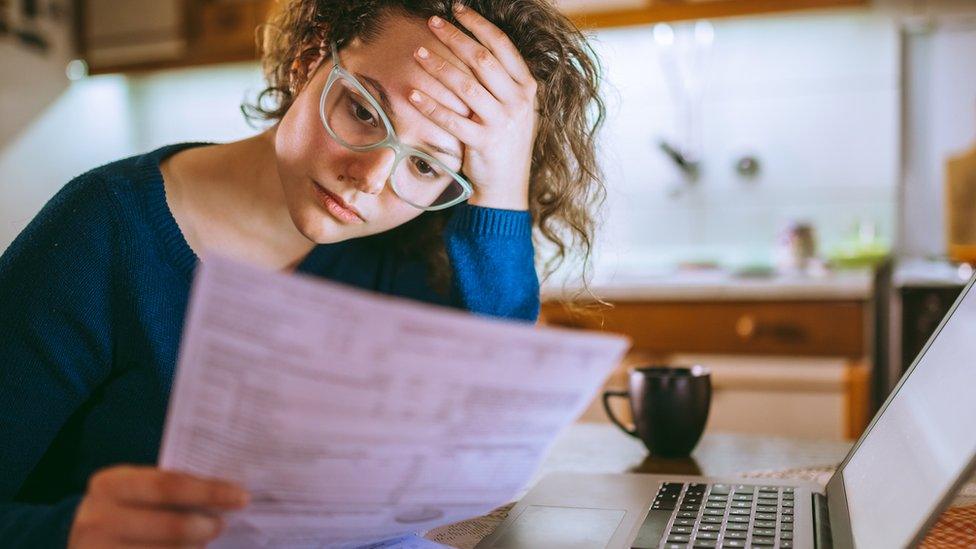
The Stepchange charity survey by YouGov found nearly half of 25-49 year olds expect to struggle to pay bills
You might not think it, but the Spring Statement will affect your life.
Adults can find they have more or less money to spend - which could mean more or less pocket money for you!
Some parts of the Spring Statement affect the whole of the UK.
Others, such as education, only affect England. This is because Scotland, Wales and Northern Ireland make their own decisions on those areas.
- Published6 October 2021

- Published21 September 2021
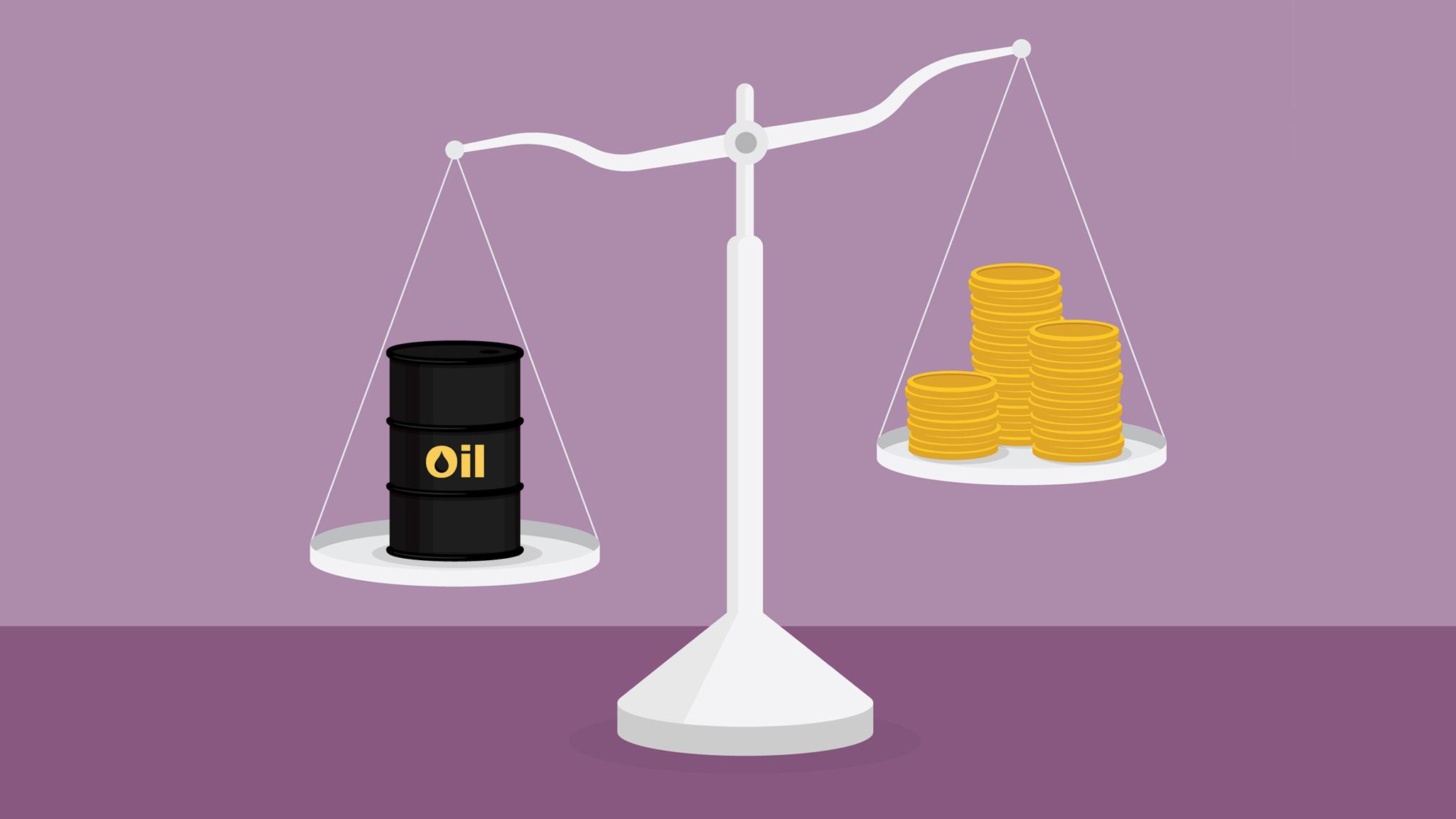
- Published3 September 2019
